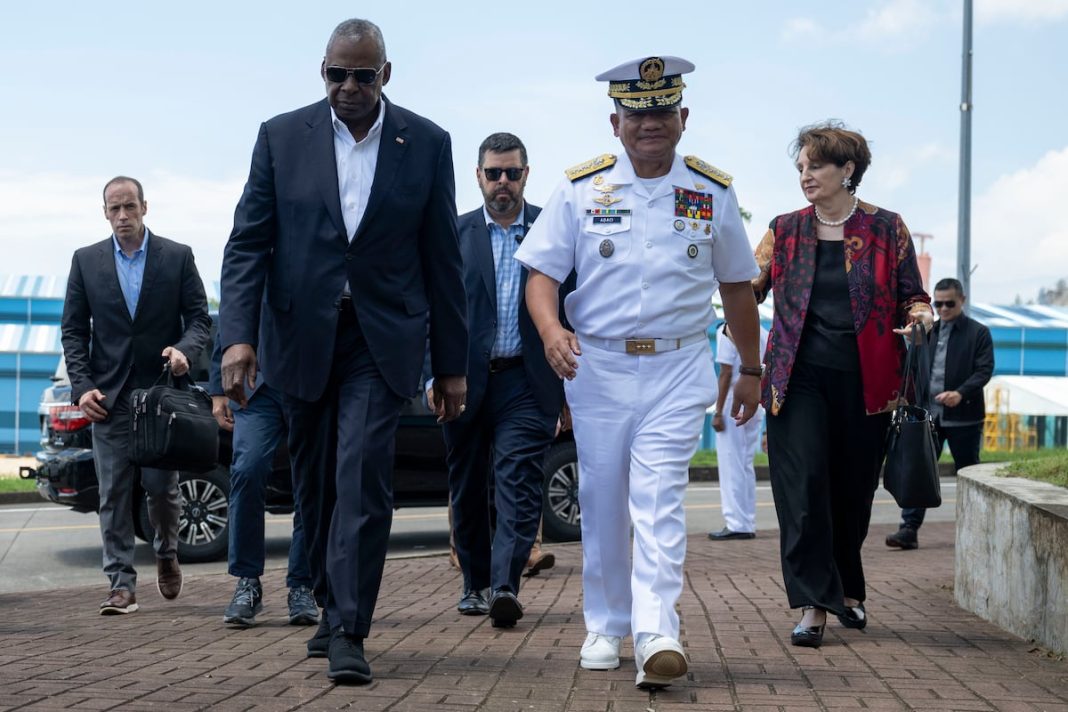Secretary of Defense Lloyd Austin is set to embark on his final trip to the Indo-Pacific region this Friday, marking his 12th journey to what the United States has identified as its primary geopolitical priority, particularly in relation to China. During this farewell tour, Austin plans to engage with a number of U.S. allies and take part in crucial discussions aimed at strengthening defense ties.
Austin’s tenure has been marked by a significant revitalization of American military presence in the Indo-Pacific. Under his leadership, the Pentagon has expanded its partnerships, enhancing cooperation with both established allies and newer partners. Among the nations on his itinerary are the Philippines and Australia, where he will meet with counterparts, including officials from Japan. In addition to these bilateral meetings, Austin will also participate in a regional defense ministers’ meeting in Laos before becoming the first U.S. Secretary of Defense to visit Fiji, where negotiations are underway for a military access agreement.
This enhanced collaboration aims to position American capabilities closer to China’s coastline, thereby complicating any potential targeting of U.S. forces. A senior defense official praised the advancements made during Austin’s time in office, highlighting a noticeable shift in the operational landscape over the past five years.
However, this trip arrives amidst a backdrop of potential political upheaval that could influence the partnerships Austin has cultivated. The recent re-election of Donald Trump, combined with shifts in Japan’s political landscape, signals a period of uncertainty for the alliances formed in response to China’s assertiveness in the region. While U.S. officials maintain that the approach to China enjoys bipartisan support, Trump’s selection of allies, such as the controversial Pete Hegseth for key roles, raises questions about the future direction of U.S. foreign policy.
Comments from experts indicate that while the posture changes initiated by Austin are likely to endure, the specifics of defense spending and burden-sharing may come under scrutiny in the new administration. Trump has previously expressed skepticism about the U.S. commitment to Taiwan, a critical point of tension with China, which has remained a key concern for leaders in the Indo-Pacific.
Amidst Austin’s farewell and the possible transitional dynamics caused by the incoming administration, the region’s countries remain vigilant, particularly regarding their defense strategies in light of evolving U.S. foreign policy priorities. As allies grapple with these changes, Taipei continues to bolster its defense spending, reflecting its ongoing commitment to securing American support amid the regional complexities posed by China.





